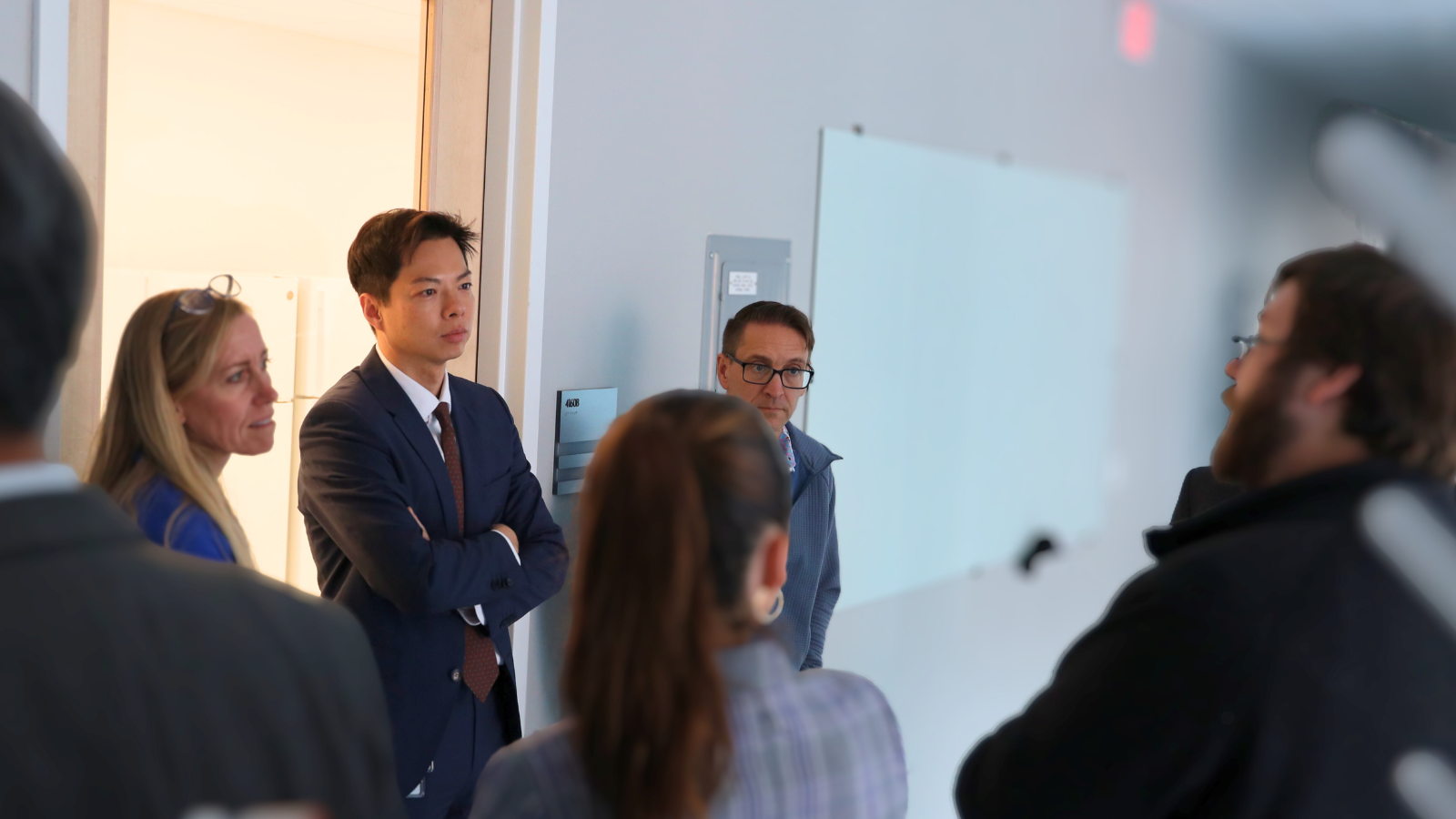News Story
Gordonov Completes NSF Summer Research Fellowship in Singapore

Tanya Gordonov (back row, 5th from right) and the NSF EAPSI Fellows at the U.S. Embassy in Singapore in the summer of 2012. They were joined by embassy staff and NSF Director Dr. Subra Suresh (front row, center, in dark suit).
The NSF's EAPSI program offers selected graduate students a six- to eight-week fellowship in a participating host country. In addition to research, the program stresses the cultivation of professional contacts and cultural immersion, including insight on the host country's approach to research and its national science policies.
Gordonov was placed at Nanyang Technological University (NTU) in Singapore, where she worked under Clark School alumnus and former Bentley Group member Professor Matthew Wook Chang (Ph.D. '03, chemical engineering). Her project, an expansion of the research she conducts as a member of the Maryland Biochip Collaborative, involved the construction and testing of a system designed to control cellular gene expression with the use of electricity, part of the Collaborative's larger goal of connecting biology with electronics. Throughout the summer, she and the other EASPI Fellows met with members of the U.S. Embassy in Singapore, NTU's research officials, and NSF director Subra Suresh to discuss their progress and experiences. The program concluded with research presentations and a closing ceremony at the U.S. Embassy.
Gordonov describes the entire experience as "invaluable," and considers Chang and his group members colleagues and potential collaborators. "They are all very hard working and fun individuals who have made significant impacts on the fields of synthetic biology and bioengineering," she says. "Dr. Chang's lab and my lab here at UMD plan on collaborating, and now that I know what the capabilities of both are…[I] have ideas about additional collaborations and projects and experiments where [we] would be able to help each other out. For example, I was able to use the anaerobic chamber at NTU, which we do not have, while our lab could provide help with microfluidic device design and testing."
"I learned a lot about the culture of Singapore and other Southeast Asian countries," she adds, "I also formed lasting friendships with my fellow EAPSI participants, who are all graduate students in a variety of fields."
For More Information:
Visit the NSF's EAPSI web site »
Visit the Bentley Group web site »
Visit the Maryland Biochip Collaborative web site »
Visit Professor Matthew Wook Chang's web site »
Published September 21, 2012









